Philip J. Rasch
Climate Intervention Analysis using AI Model Guided by Statistical Physics Principles
Feb 07, 2023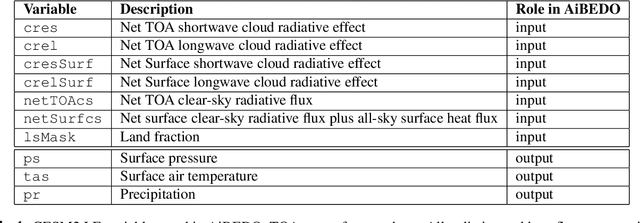
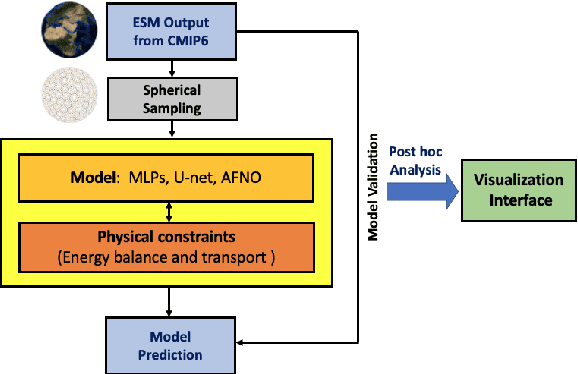
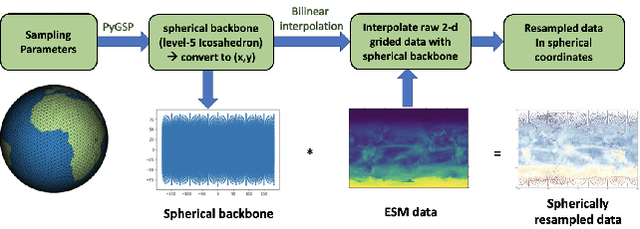

Abstract:The availability of training data remains a significant obstacle for the implementation of machine learning in scientific applications. In particular, estimating how a system might respond to external forcings or perturbations requires specialized labeled data or targeted simulations, which may be computationally intensive to generate at scale. In this study, we propose a novel solution to this challenge by utilizing a principle from statistical physics known as the Fluctuation-Dissipation Theorem (FDT) to discover knowledge using an AI model that can rapidly produce scenarios for different external forcings. By leveraging FDT, we are able to extract information encoded in a large dataset produced by Earth System Models, which includes 8250 years of internal climate fluctuations, to estimate the climate system's response to forcings. Our model, AiBEDO, is capable of capturing the complex, multi-timescale effects of radiation perturbations on global and regional surface climate, allowing for a substantial acceleration of the exploration of the impacts of spatially-heterogenous climate forcers. To demonstrate the utility of AiBEDO, we use the example of a climate intervention technique called Marine Cloud Brightening, with the ultimate goal of optimizing the spatial pattern of cloud brightening to achieve regional climate targets and prevent known climate tipping points. While we showcase the effectiveness of our approach in the context of climate science, it is generally applicable to other scientific disciplines that are limited by the extensive computational demands of domain simulation models. Source code of AiBEDO framework is made available at https://github.com/kramea/kdd_aibedo. A sample dataset is made available at https://doi.org/10.5281/zenodo.7597027. Additional data available upon request.
Accelerating exploration of Marine Cloud Brightening impacts on tipping points Using an AI Implementation of Fluctuation-Dissipation Theorem
Feb 03, 2023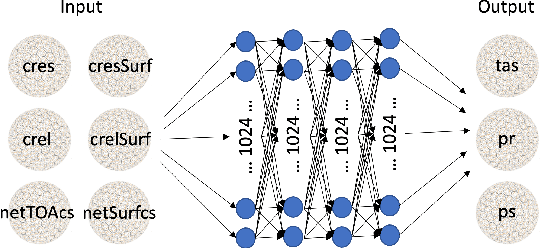


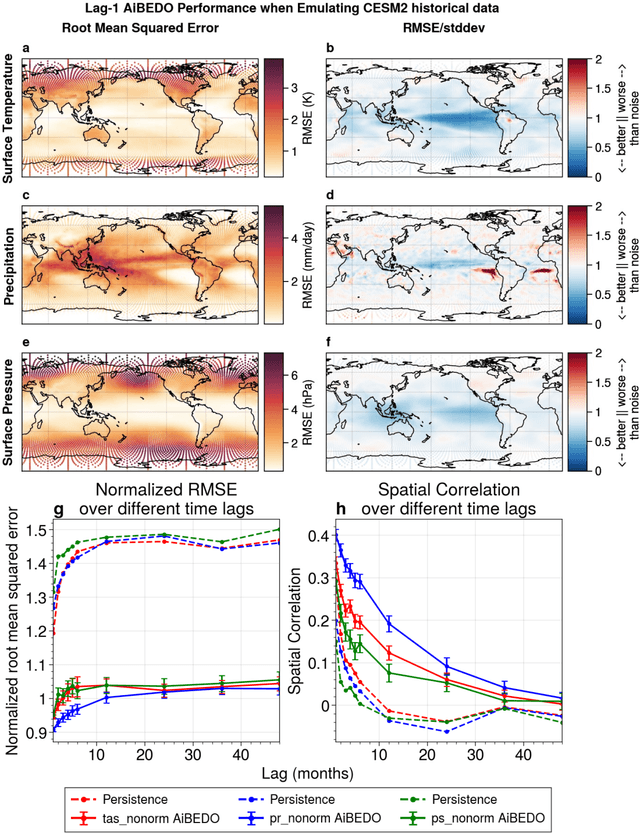
Abstract:Marine cloud brightening (MCB) is a proposed climate intervention technology to partially offset greenhouse gas warming and possibly avoid crossing climate tipping points. The impacts of MCB on regional climate are typically estimated using computationally expensive Earth System Model (ESM) simulations, preventing a thorough assessment of the large possibility space of potential MCB interventions. Here, we describe an AI model, named AiBEDO, that can be used to rapidly projects climate responses to forcings via a novel application of the Fluctuation-Dissipation Theorem (FDT). AiBEDO is a Multilayer Perceptron (MLP) model that uses maps monthly-mean radiation anomalies to surface climate anomalies at a range of time lags. By leveraging a large existing dataset of ESM simulations containing internal climate noise, we use AiBEDO to construct an FDT operator that successfully projects climate responses to MCB forcing, when evaluated against ESM simulations. We propose that AiBEDO-FDT can be used to optimize MCB forcing patterns to reduce tipping point risks while minimizing negative side effects in other parts of the climate.
 Add to Chrome
Add to Chrome Add to Firefox
Add to Firefox Add to Edge
Add to Edge